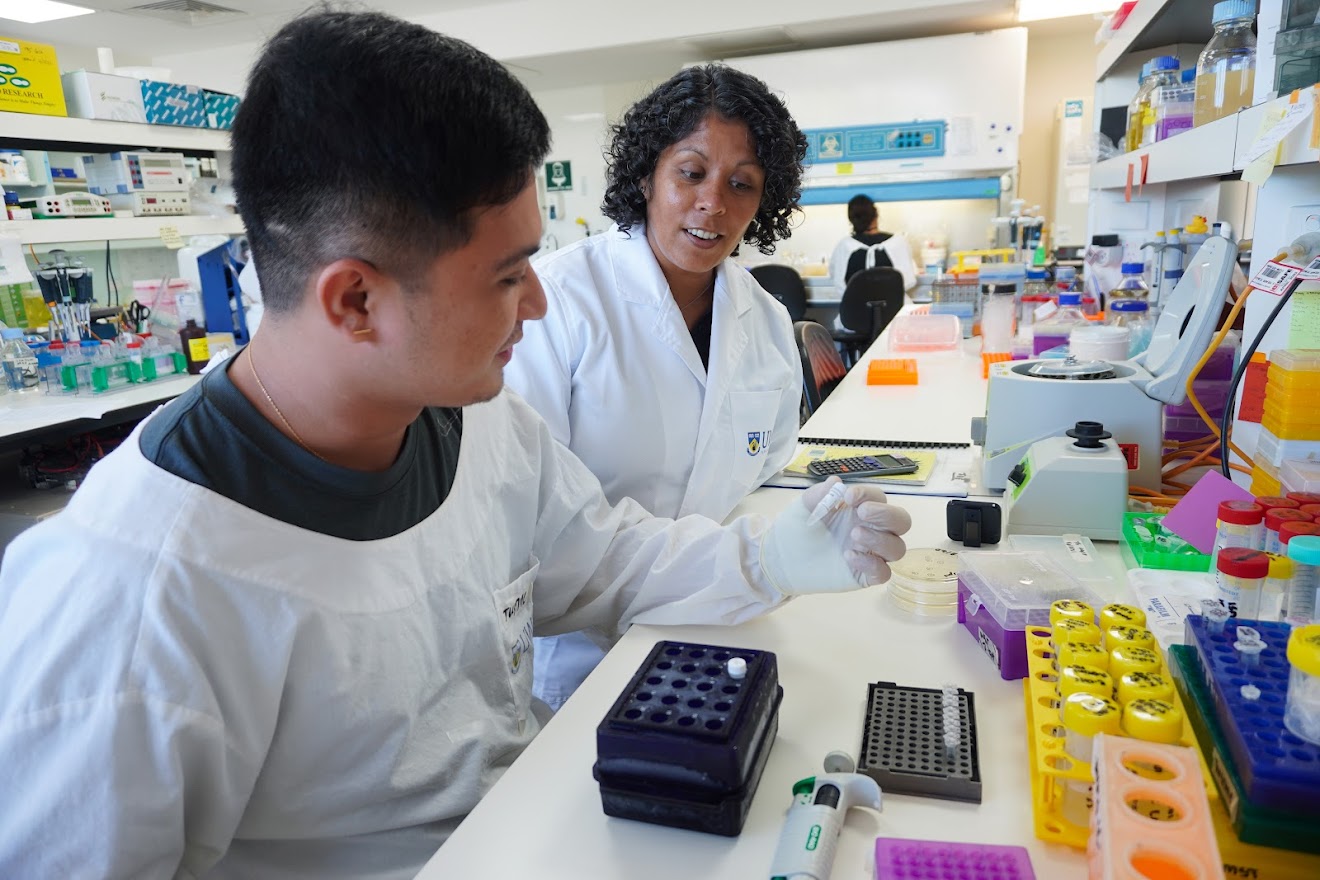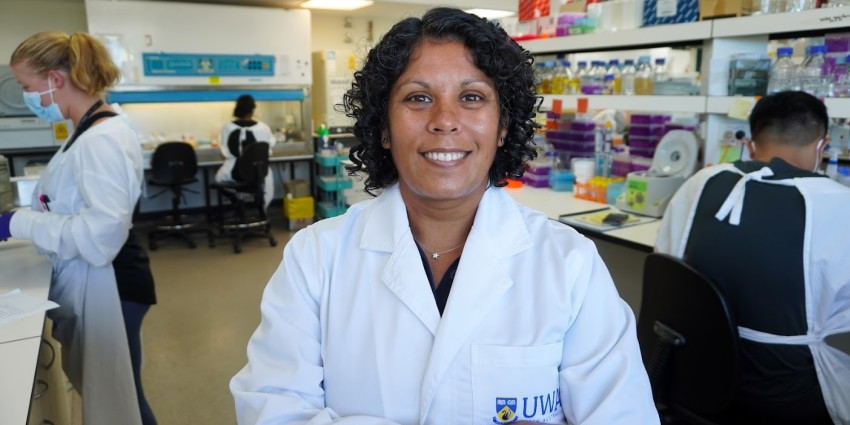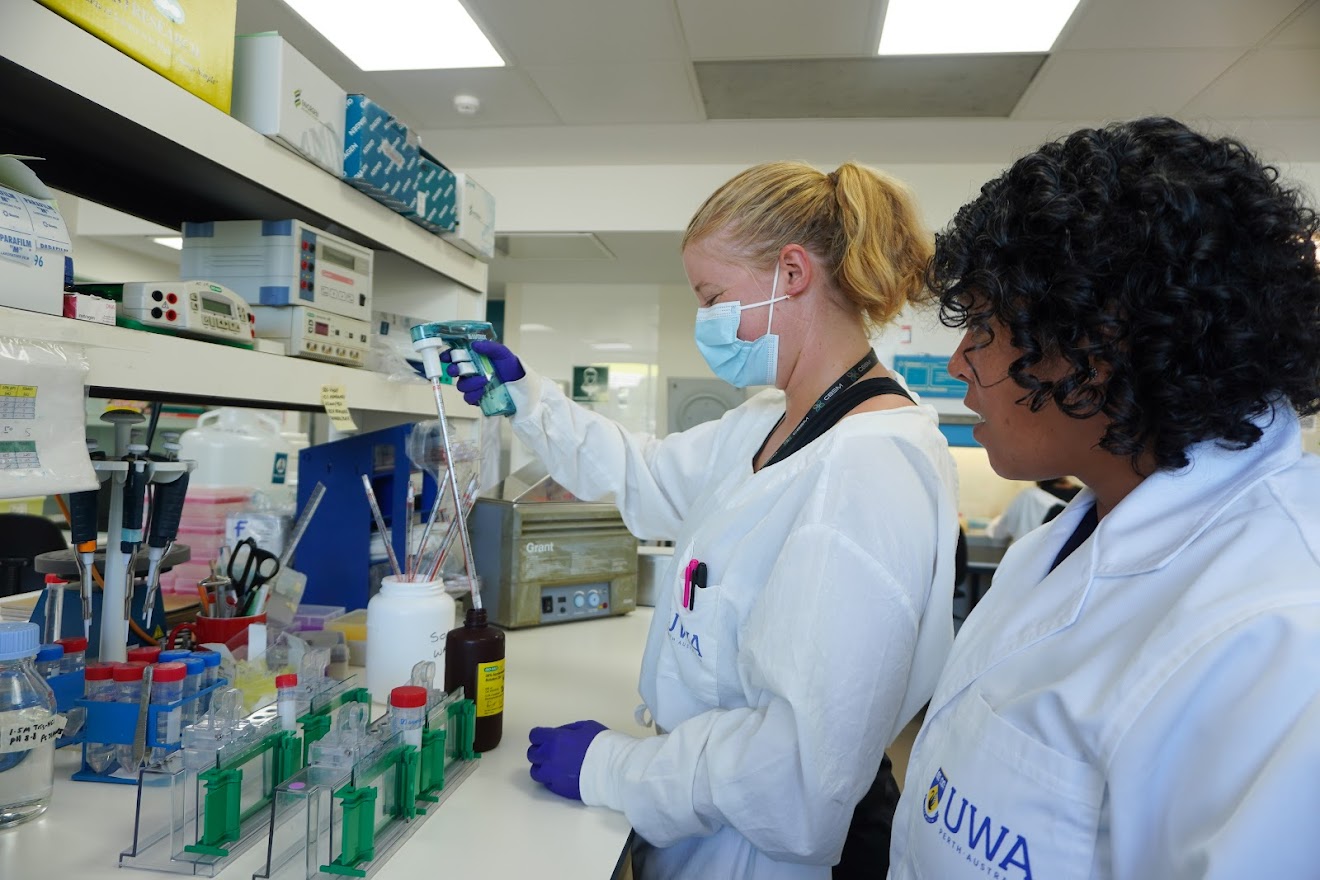
In 2019, the University of Western Australia (UWA) was awarded $150,000 through the Defence Science Centre’s Collaborative Research Grant. The funding supported UWA in conducting research into preclinical testing of novel compounds against multi-drug resistant bacteria of biological warfare concern.
Defence personnel often face exposure to bacterial infections on the front line. Whether naturally occurring or weaponized, these threats pose significant implications for their morbidity and mortality.
Antibiotic therapies sometimes fail to remain effective in neutralizing and treating infections due to repetitive use. This creates an environment for infections to build resilience to drug therapies and allow for mutations.
UWA’s team led by Dr. Mitali Sarkar-Tyson, and in collaboration with Professor Geoff Coombs (Murdoch University), Prof Carl Kirkpatrick (Monash Institute of Pharmaceutical Sciences, Monash University), Dr Felicia Pradera (Defence Materials Technology Centre) sought to create effective antibiotic therapies to aid in the recovery of Q-Fever and Melioidosis (B. pseudomallei) infections.
“The compounds we’re investigating will help us tackle important diseases in Australia such as melioidosis, also known as Whitmore’s disease, which is caused by a bacterial infection,” says Dr Mitali Sarkar-Tyson.
In a first for the university, UWA has developed a unique capability in testing drug therapies against Melioidosis, providing a platform for further development and research into treatments.
Despite the ongoing global COVID-19 pandemic, the international research team has achieved significant milestones throughout the last two years.
The research found that the Melioidosis infection spread through the system over seven days, with growth in bacterial numbers. Doxycycline was efficient at clearing the infection, however, continued improvements are required to support the longevity of its effect before being noted as a therapy option for Melioidosis infection and Q-Fever.
The collaborative team are continuing with their research and are seeking to expand to include experts in synthetic and medicinal chemistry.
“Novel countermeasures need to be developed against highly infective bacterial pathogens, either because a countermeasure doesn’t yet exist or because bacterial resistance is reducing the effectiveness of currently-fielded antibiotic treatments,” Dr Pradera said.
The Defence Science Centre, part of the Department of Jobs, Tourism, Science and Innovation offers support to Western Australian institutions to develop local capabilities and research to find solutions for current and future Defence developments.
Round 4 of the Collaborative Research Grants are now open to researchers looking to impact Defence capability in Western Australia.
Funding up to $150,000 is available to projects that align with the Next Generation Technology Fund, including medical countermeasure products, space capabilities, cyber and enhanced human performance.
To learn more or apply, please visit the Defence Science Centre website, for eligibility and other criteria and to submit your project.
To learn more about this research, visit the UWA website (external site).




